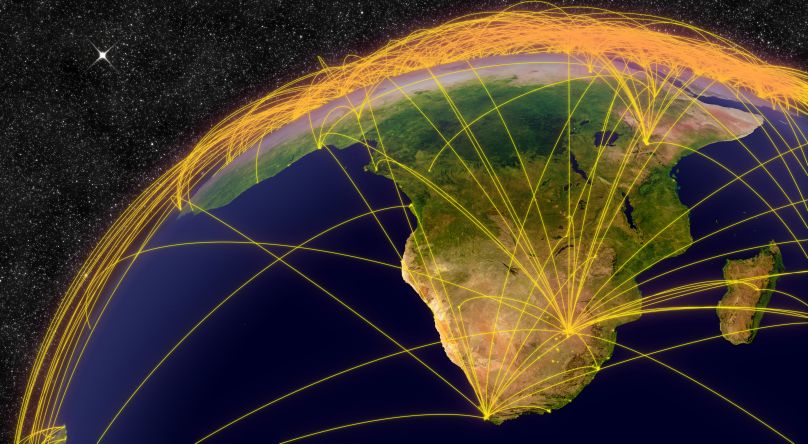IAD Fall 2022 Conference

Digitalization in Africa: Impetus for Innovations and Development
The Institute for African Development is pleased to announce the theme of its upcoming fall conference, DIGITALIZATION in AFRICA: IMPETUS FOR INNOVATIONS AND DEVELOPMENT.
The conference will be held on October 28-29, 2022 (Ithaca, NY) USA
Hybrid mode / in-person at Cornell
The conference will focus on the digital era as an entrepreneurial transformative prototype in Africa. Other aspects of the conference will focus on the channels utilized by Africans while navigating digital instruments, developing well-thought programs and technological innovations. Although technology is easily transferred, the context of the beneficiary nation or community has to take into account optimal application. Africans are applying technology to open all possibilities and devising ways to promote the eradication of poverty. This conference will pivot on digital trajectories and projection into the future beyond the 21st century, exhibiting African innovative competence in the digital era as part of the most critical areas of a holistic organization towards thorough and more broadly social progress.
Africa has experienced a digital revolution giving rise to infinite opportunities, empowering a myriad of ordinary people to venture into the technology domain, who would have otherwise been left out. The new reality is that global economies are moving towards digitization in all aspects of daily life. The power of digital technology is captivating, promising, and salient. Digital technologies are not alien to Africa and African perspectives are shifting, influenced by the dynamic economic, political, and social landscape. The digitization platform stands unshakable and this was more evident during the COVID-19 pandemic.
Abstracts should meet the standard of original scholarly research, and commentary. Abstracts will be reviewed through a double-blind process of peer review. References, tables, charts, graphs, images, and figures and any illustrations should not be considered as part of the word count and are to be added at the end of the text. Abstracts should not contain any information that might identify the author(s). A short biography (maximum 50 words), indicating the full name, institutional affiliation, and email address should be sent as a separate accompanying document.
We invite submissions that represent an original study (not previously published) that deal with digital technologies in Africa. Submissions must include an abstract consisting of 800 (minimum) - 1000 (maximum) words. All manuscripts should focus on one of the four identified sub-themes:
(i) Africa and Digital Economies: Digital economy is the new marketplace and modern-day economics. Cashless economies are on the rise, mobile technologies like M-pesa and Bitpesa are impacting transactions across the continent and the world. How is digitalization factored in innovations, entrepreneurship, local and global trade? How have the different sectors of the economy, including agriculture, responded to the digital reality?
(ii) Digitalization and Political spaces: The political landscape has drastically changed due to digital technologies especially with information, social media, and voting rights. How are technologies being enhanced to writing better laws and policies in communities, and fostering new ways of thinking?
(iii) Digitalization and Education: The education landscape previously characterized by the traditional brick & mortar only classroom model has been pressed to acknowledge the need to move to a mix of technology within the traditional teaching and learning context and an all-borderless space utilizing technology. How has the digital reality impacted education spaces, considering the different levels, from elementary school to higher education in general and specifically the universities? What are the implications of the digital expansion on the production of knowledge?
(iv) Digitalization and Medicine: The development of Africa’s digital health sector has been intensified by the need for improved and innovative health services. Countries like Rwanda with its drone-delivered medicine and South Africa’s machine-dispensed medication are leading the way in Africa. On the whole, telemedicine possibilities must cater to people irrespective of where they live and their socio-economic status. Contemporary and innovative medical technology is fundamental to enhancing and transforming the health landscape on the continent.
(v) Digitalization and Religion: Religion as a social institution occupies a wide physical and social space that impacts development programs in Africa. How have religious organizations responded to this digital emergence? How have practices of different religions that required in person participation adapted in response to the digital occurrence?
